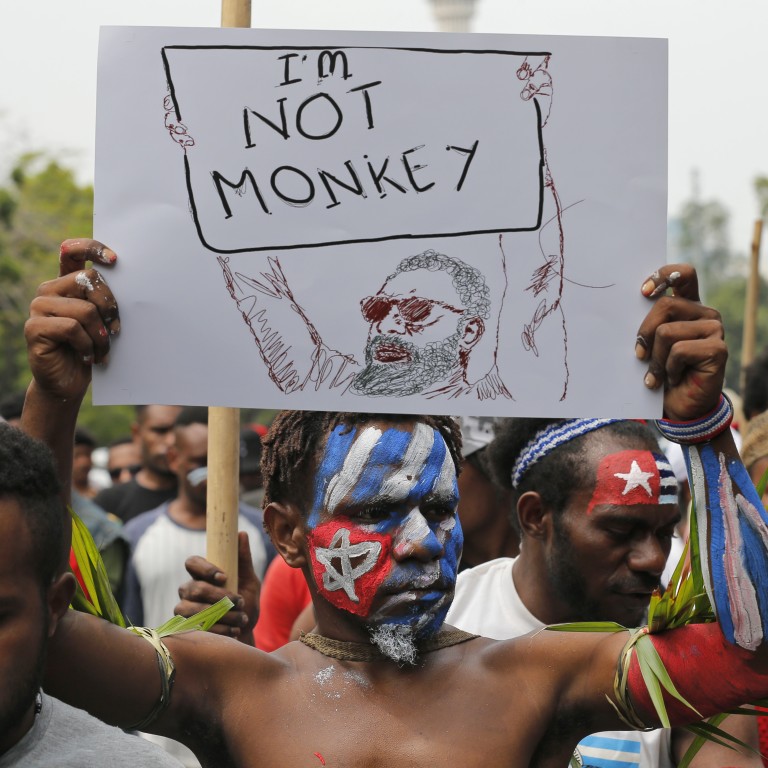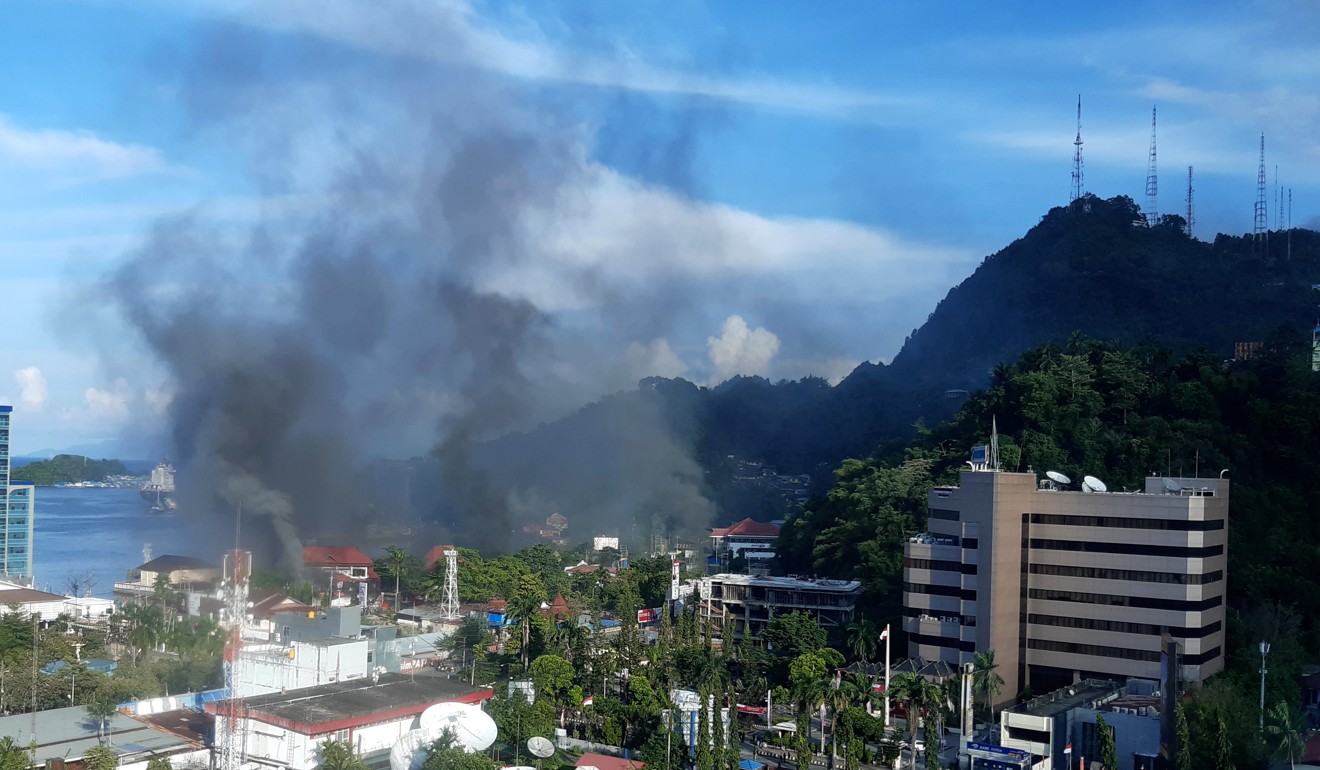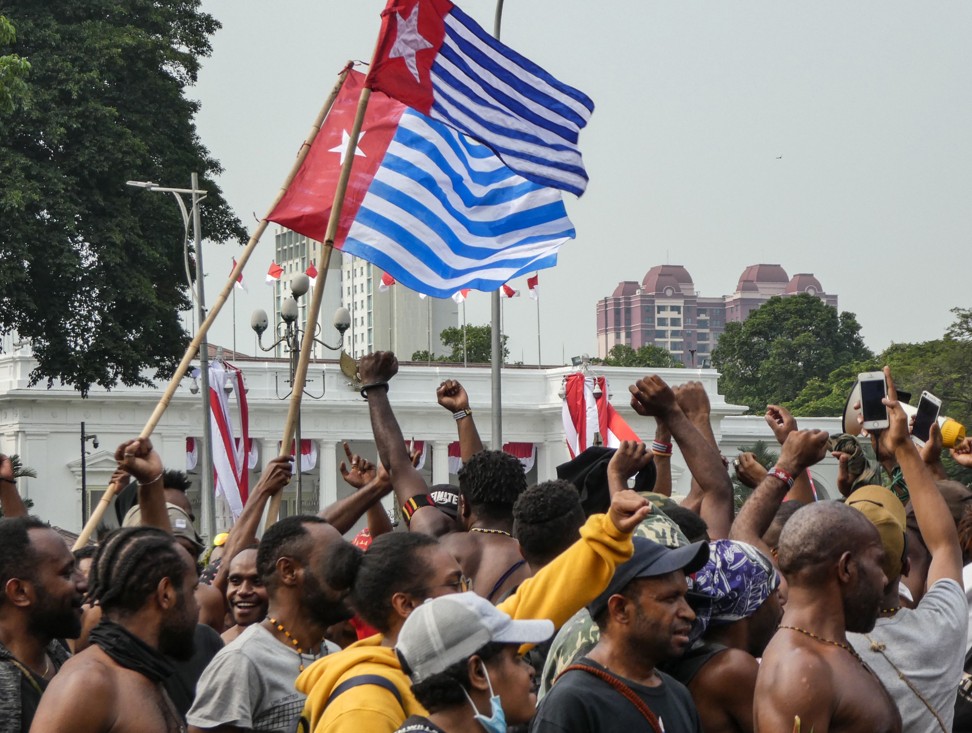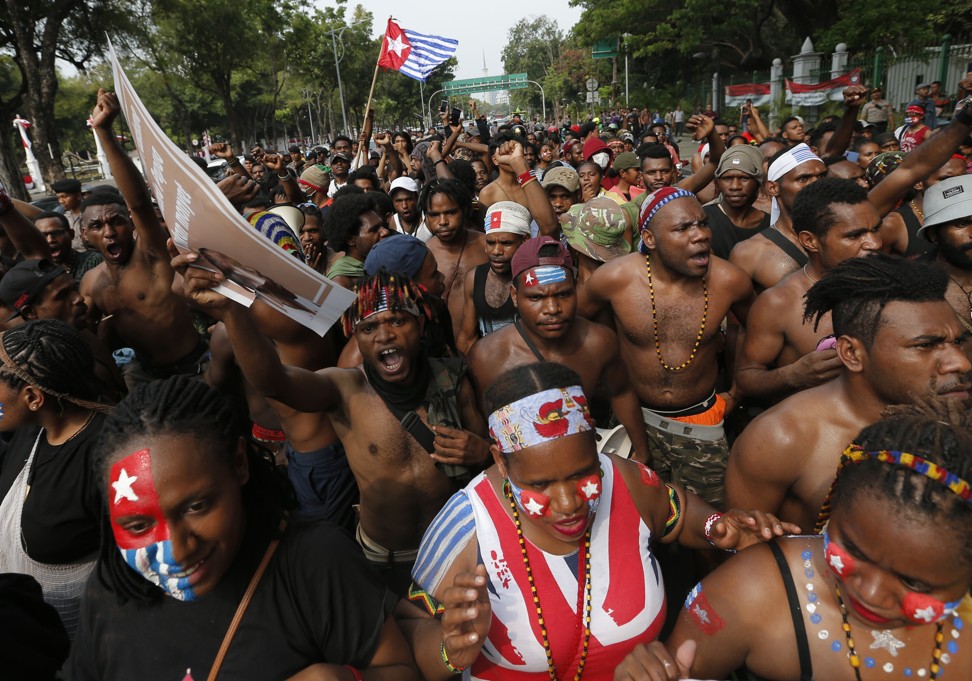
Power cut off in capital of Indonesia’s Papua as protesters set fire to public property
- Police fired tear gas to scatter demonstrators who set fire to cars and threw stones at shops and offices, state media said
- For almost two weeks, the region has been racked by civil unrest over perceived racial and ethnic discrimination
National police spokesman Dedi Prasetyo said the building was torched in Abepura town in Jayapura, the provincial capital.
“Several public facilities and properties were damaged by rioters,” said Dedi. “Authorities are trying to control the situation.”
Demonstrators also set fire to a building housing the offices of state-controlled telecoms firm Telkomunikasi Indonesia.
Indonesia cuts internet in Papua to prevent more violent protests
The PLN utility turned off power in areas around the torched building, Ahmad Rofik, said its regional director for Maluku and Papua.
Police fired tear gas to scatter demonstrators who set fire to cars and threw stones at shops and offices, state news agency Antara said.

State energy firm Pertamina shut several gas stations in Jayapura over the protest, said its spokesman, Fajriyah Usman.
The government has blocked telecommunication and internet access in the region since last week amid spreading protests that have at times turned violent.
The protests were triggered by videos circulated on the internet showing security forces calling Papuan students “monkeys” and “dogs” in East Java’s Surabaya city.
A video from Abepura showed demonstrators, including students in yellow jackets, chanting “Freedom Papua” and paving posters reading “We are not monkeys”.
Many in the crowd wore headbands adorned with the Morning Star flag that is a separatist group symbol, and held banners demanding a referendum for independence.
Wiranto, the coordinating minister for Politics, Law and Security told reporters ahead of a hearing with lawmakers in Jakarta that he received a report saying protesters had also broken into a prison in Abepura.
Six killed after Indonesian authorities open fire on Papuan protesters
Wiranto, who uses one name, said he instructed security forces in Papua not to take repressive measures and real bullets should not be used in dealing with the protesters.
Shooting broke out a day earlier between protesters and police in the town of Deiyai, about 500km from Jayapura.
At least one Indonesian soldier and two civilians were killed on Wednesday in a violent protest in Deiyai, a district in the province. Police said protesters stole at least 10 rifles.
Police have deployed 300 mobile brigade personnel to the towns of Deiyai, Paniai and Jayapura after Wednesday’s incident, the news agency quoted police chief Tito Karnavian as saying.
A separatist movement has simmered for decades in Papua, while there have also been frequent complaints of rights abuses by Indonesian security forces.
Over 1,000 troops, police officers sent to Indonesia’s Papua, as riots spread
Indonesia maintains a significant police and military presence in the volatile provinces of Papua and West Papua, a mineral-rich region where a decades-long separatist movement simmers and the predominantly-Christian indigenous people resent an influx of Muslim Indonesians.
Conflicts between indigenous Papuans and Indonesian security forces are common in the impoverished region, which Indonesia annexed more than half a century ago, before it was incorporated into the country in 1969 after a UN-sponsored ballot that was seen as a sham by many.




